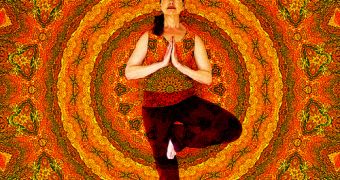A new study is assessing whether Yoga could help improve prison environment, based on the idea that it could prove beneficial for the inmates' health and safety.
The research is carried out by former probation officer Rose Parkes, as part of her PhD at the University of Leicester Department of Criminology, and she is trying to determine the potential of Yoga of helping prisoners and staff get in touch with their spiritual side.
While she was working as a part-time Probation Officer, she became more and more convinced that the technique managed to create positive relationships with other offenders, so she started a study to determine whether yoga can help people cope with incarceration.
Parkes said that “prisons are highly stressful environments and yoga may offer prisoners a much needed physical and mental release of the tension of prison life, paradoxically turning prison cells into places of retreat, where prisoners can develop self-discipline and concentration skills.
“If prisoners are better equipped to deal with their emotions, particularly fear and anger, then, I believe, they are less likely to harm themselves or others.
“This can only be of long-term benefit to society.”
Rose Parkes is also a British Wheel of Yoga teacher, and in her research, she talks about the way that spiritual activities can motivate prisoners and give them strength to survive their incarceration.
“I believe that prisoners can benefit from yoga because it is a practice which helps to foster understanding, self-acceptance, peace and wellbeing,” said Rose, who is determined to prove that Yoga can help individuals to adjust to the prison environment and post-prison life.
Also, her study analyzes wheter prisoner yoga practices can help prisons fulfill the HMIP ‘healthy prison’ criteria – eliminating suicide, self-harm and violence in prisons, set out by the Government in 2008 after concerns about prison conditions.
This study is based on participant observation, in-depth interviews and documentary analysis, and it is part of the current political drive to reduce prison populations and to revitalize rehabilitation agendas.
“The ability of yoga to build ‘social capital’ is, I believe, another great benefit arising from the practice,” Parkes concluded.
She will present the research on December 8.

 14 DAY TRIAL //
14 DAY TRIAL //